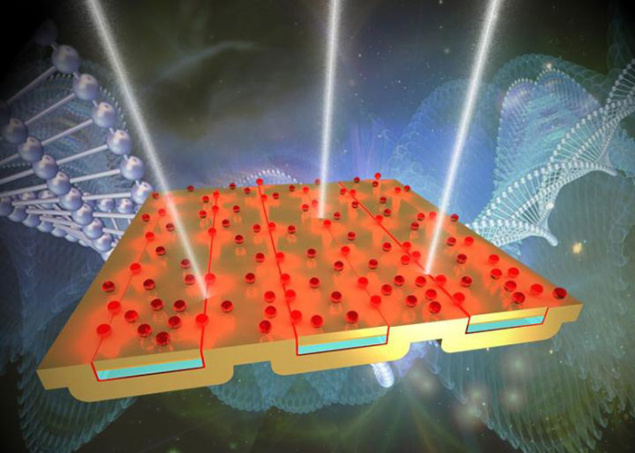Plasmonic nanostructures based on the process of interaction between electromagnetic waves and conducting electrons in nanoscale metals
Researcher and author: Dr. ( Afshin Rashid)
Note: Plasmonics is based on the interaction process between electromagnetic waves and conducting electrons in nanoscale metals. Analytically , it is the cause of the rapid energy loss of electrons passing through metals. The free electrons become metal and it is called plasmon.
The reason for this naming was the similarity of these electron oscillations with the oscillations of the particles in the plasma environment. The term polariton is used to oscillate metal-bound electrons when paired with incident beam phonons. The name polariton was used for quasi-particles that were half-matter and half-photon, which is the coupled state between an elementary excitation beam photon and metal conduction electrons, and the term Plasmon Polariton to express the cause of a coupling between a photon and Is a plasmon.
According to some categories, these nanostructures are also called nanoparticles. Factors affecting the properties of nanoparticles are the size and material of the particles. Nanoparticles can be made in different shapes such as spherical, elliptical, cubic, prismatic, columnar, etc., depending on their application. Nanoparticles may be composed of one component or a combination of several material components. Nanoparticles can also be pure or a combination of several different materials. The importance of nanoscale in changing the properties and characteristics of materials in these dimensions. Properties such as electrical conductivity, electromagnetic properties and so on. The beginning of changing the properties of a material by shrinking it depends more than anything on the type of material and the desired property. For example by shrinking The dimensions of a material generally improve some of the nanomolecular electromagnetic properties of the material, such as the conductivity of nanoparticles in the material. This increase in strength does not occur only in the range of a few nanometers, and the strength of a material of a few tens or even a hundred nanometers may be much greater than that of a large-scale bulk material. On the other hand, changes in some properties such as conductivity in nanotransistors and electromagnetic properties in nanowires may occur in dimensions of only a few nanometers. Resonance of surface plasmons in structures with nanometer dimensions is called Localized Surface Plasmon Resonance.
Conclusion :
Plasmonics is based on the process of interaction between electromagnetic waves and conducting electrons in nanoscale metals. Analytically , it is the reason for the rapid energy loss of electrons passing through metals. It releases metal and calls it plasmon.
Researcher and author: Dr. ( Afshin Rashid)
PhD in Nano-Microelectronics




